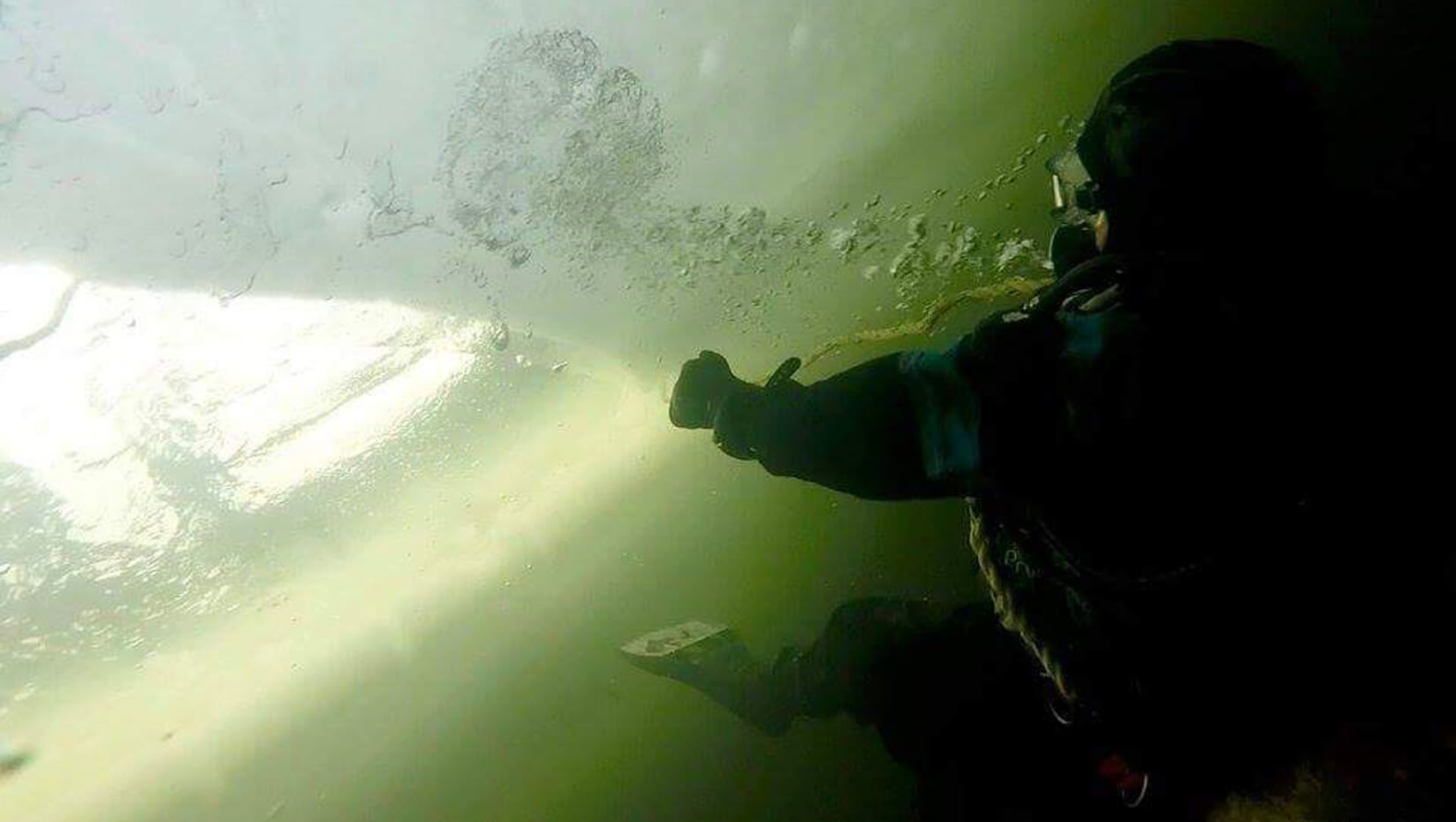
Divers have ‘time of their life’ under the ice
A hole in the ice is more than a mark of traditional Maine ice fishermen. It’s also a passageway to a beautiful underwater world.
Divers from the University of Maine Darling Marine Center, including Ashley Rossin and Sean O’Neill, recently earned their ice diving certification to broaden their skills as marine science researchers.
Rossin is a graduate student in the UMaine School of Marine Sciences. She examines cold-water corals and has experience diving in Alaska. She says this certification will help her conduct research in other cold-water locales.
“I want to dive in more cold-water environments — both poles, Norway, more of Alaska, southern Australia and New Zealand, just to name a few,” she says. “Basically, everywhere there are cold-water corals that still need to be discovered, I’ll be there.”
O’Neill, a research associate at the DMC, has done underwater exploration in the polar regions. He also plans to utilize the ice diving certification in future endeavors.
“I was also just curious what it would be like to dive under the ice,” he says. “It was definitely a unique experience.”
Along with Rossin and O’Neill, the group included students Teiga Martin, Kathy Miller and Nils Haëntjens, and professor Emmanuel Boss with the UMaine School of Marine Sciences.
Divers earned the specialty certification through the Professional Association of Diving Instructors (PADI). To qualify for the training, divers had to possess PADI’s Advanced Open Water certification.
The two-day training included four hours of classroom education and three dives under the ice at the pond at the Mount Vernon Fire Station. Dave Sinclair and Matt Sinclair of Port Clyde were instructors.
Ice divers need to guard against equipment freezing, as well as making sure tether lines are securely anchored and trusting others to handle lines and double-check equipment.
“To put two people in the water, it takes about five,” says Dave Sinclair.
Both O’Neill and Rossin say the experience was incredible.
“I found myself in awe looking up at the air bubbles coalescing underneath the ice,” says O’Neill. “They shimmered like mercury as they danced across the underside of the ice. Truly amazing. It reminded me of looking up at the sky covered by the Aurora Borealis.”
Rossin says despite being tethered, she felt a sense of freedom.
“The world goes silent except for your breath, and you can’t care about what’s happening on the surface,” she says. “There’s no way to check your email or texts. All you have to do is breathe and have the time of your life.”
